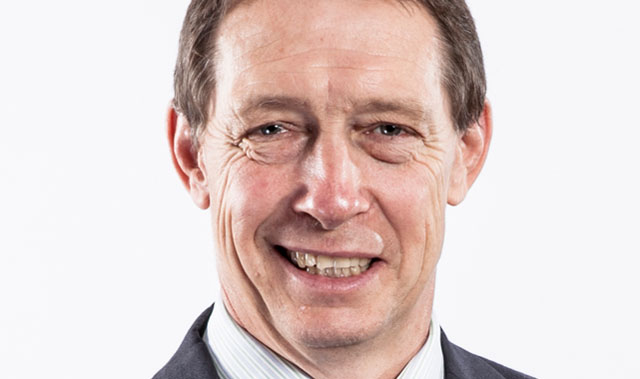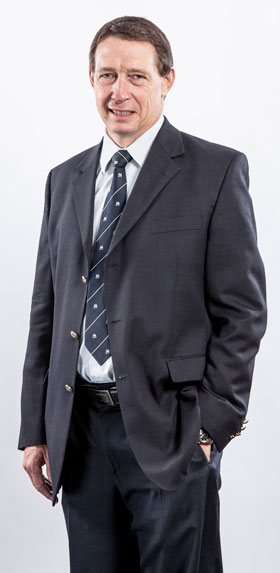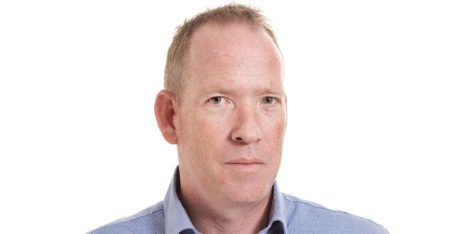
The technology distribution business in South Africa has become “massively overtraded” and competitors are in a “race to the bottom” if they can’t diversify by entering complementary business areas.
That’s the view of Miles Crisp, CEO of MB Technologies, the formerly JSE-listed technology holding company whose principal subsidiary is Tarsus Technologies.
Crisp says MB Tech, which is owned by Investec Bank, is shifting its strategy in an effort to counter the extreme margin squeeze in the distribution game. He wants to lead a reinvention of the business along similar lines to the change that Lou Gerstner brought to IBM. Gerstner, who was IBM’s CEO from 1993 to 2002, transformed Big Blue from a product-focused company to a services-led business.
“It’s so competitive now,” Crisp says of South Africa’s technology distribution space. “Volumes determine the level of rebate you can get from suppliers. And all the distributors are driving for volumes and trying to qualify for rebates — that’s a vicious circle.”
To climb out of that vicious circle, MB Technologies, which was founded 20 years ago by Leo Baxter and Mike McGrath — neither is still involved — is trying to shift its business model to one that is more responsive and value adding to customers, says Crisp.
“It needs to be customer focused,” he says. “That sounds like a cliché and also quite simple — actually, it isn’t; it’s complex. It has implications on how we cost and measure things, what we have in our stable, and how we go to market. And it has implications on who we employ and how we remunerate them.”
 MB Technologies group companies need more senior salespeople who are capable of understanding enterprise IT strategy and who can put together solutions and services rather than simply dropping boxes, Crisp says.
MB Technologies group companies need more senior salespeople who are capable of understanding enterprise IT strategy and who can put together solutions and services rather than simply dropping boxes, Crisp says.
The danger, of course, is that resellers, which form a core part of the business, could view the shift in strategy as a move to compete with them. MB Technologies, through Tarsus, sells to resellers, who then interact with and sell products and services to end-user customers.
“Sometimes that strategy [we are implementing] can be misinterpreted as going direct to end users. Our strategy still entails working through the channel,” Crisp says. But managing that line can be tricky.
MB Tech’s strategy is to bring additional capabilities into the group, he says. “We acquired Cloud on Demand, for example, which allows resellers to provide a cloud service to their customers. And we have bought SecureData because everything you do today has a security thread to it.”
Crisp says the group’s insurance and financial service products as well as its after-sales service offerings are growing, but need to become a more significant part of the revenue mix. A bigger footprint in Africa is also important, he adds.
For now, Tarsus focuses exclusively on the Southern African region. “We are a South African company doing some business outside South Africa. Our vision entails us becoming an African company,” he says.
Crisp, who took the reins from Glenn Fullerton — who had to step down after a serious cycling accident — says MB Technologies intends “ramping up” its service and support capabilities in partnership with resellers. “We are having all sorts of conversations with resellers like Business Connexion, Dimension Data and EOH.”
He says MB Technologies must go through a similar transformation to the one IBM went through under Gerstner.
“If we don’t, it means we will have failed at executing on our strategy. We see major growth in the services side of things. We are not planning to create a consulting business [like IBM], but a services capability is right in there. We haven’t sought actively to study IBM, but there are facets of what it did that make it a very interesting case study.”
A question is whether resellers really want the distributor that supplies them with products to play more aggressively in services. “The answer is that is varies from reseller to reseller,” says Crisp.
However, the group has little choice. “There’s this continuous price war. There’s a whole class of resellers that will move between distributors for half a point [in price]. You won’t strike up a proper strategic partnership like that.”
“Moving boxes” will remain part of the group’s focus. But it will walk away from business that isn’t sufficient profitable, says Crisp. “We will walk away from transactions where the margins don’t make sense. In the last few months, we have done this.”
The shift to services isn’t the only big change that Crisp is spearheading at MB Technologies. The group is also attempting to change its culture fundamentally — not an easy task given there are 1 250 employees on the payroll.
“We want to empower our people to get on with what they’re good at doing and ensure they are not shackled by controls and processes and that they are accountable for what they are doing,” he says.
“The strategy is to free people up. This sort of culture change is not for everyone — a lot of people feel comfortable working in a more dependent environment and some will leave as a result. But, in turn, we will attract others.
“The focus needs to be on letting people get on with their jobs. Even in an organisation with relatively low levels of education, people thrive when they are trusted. We must choose individuals capable of taking accountability and taking an organisation forward.” — © 2014 NewsCentral Media




